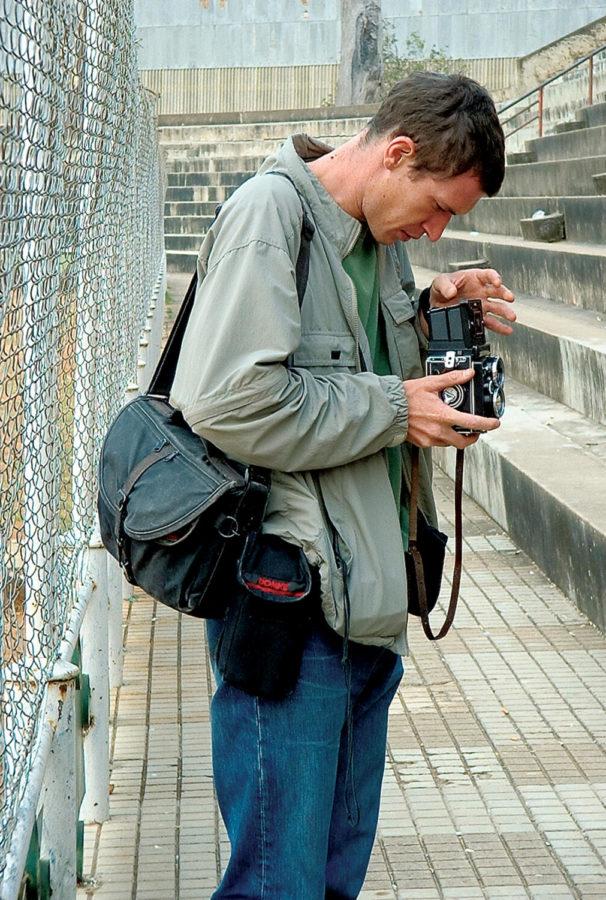Murtaugh: The fight of a journalist
Courtesy photo: Wikimedia Commons
Tim Hetherington at a photo session in Huambo, Angola, in 2002.
April 24, 2011
Studying journalism has its perks. Carrying a camera or a press pass typically gains free access into events, activities and concerts. If you’re part of a student publication, sometimes you can publish the same content you turned in for class and essentially get paid for doing your homework. There aren’t very many tests, in the reporting classes at least, and at parties, the opposite sex is almost always impressed and intrigued when you introduce yourself as a “journalism major.”
There are some drawbacks to being a student journalist, however. Even those who consider journalism a “fluff major” have to admit the constant struggle to generate new content and compete with every other reporter, every other news source, is exhausting. Members of Iowa State’s student publications, including the one you’re holding in your hands, work late into the night every single night to ensure readers receive the news on time the next morning. This doesn’t leave a lot of time to focus on coursework.
Journalism students are more than just encouraged to take part in these student publications; they’re basically required to do so — if they want a job after graduation, at least. Employment is a worry weighing down on many college students’ minds, but I think journalists especially feel that pressure. With online news sources ever-evolving and the public beginning to expect free news, journalists seem to have to fight every single day both to prove their worth and to obtain information for the pubic.
Some journalists find themselves facing a much more challenging and dangerous fight than others. Some journalists, like Tim Hetherington and Chris Hondros, pay the ultimate price for their profession.
Hetherington, a British photographer and Hondros, an American photographer died Wednesday while covering events in Libya.
Getty Images, where Hondros worked, said in a statement that he “never shied away from the front line, having covered the world’s major conflicts throughout his distinguished career and his work in Libya was no exception.”
The front line is exactly where Hondros and Hetherington were while covering a fight for control of a Libyan bridge. Colonel Gaddafi’s forces fired a mortar round at the photographers, which eventually killed them. According to the Transitional National Council, fourteen journalists are currently being held by Gaddafi’s forces.
Throughout history, war journalists have been held hostage, beaten and killed. Hondros and Hetherington’s cases were nothing new, which is why we as a public seem so desensitized to this kind of news. Unfortunately, that fact doesn’t make this news any easier for an aspiring journalist, not to mention the friends and family of those reporters, to hear. It broke my heart to read that Hondros was engaged to be married and that his fiancé will now have to replace her wedding plans with funeral arrangements.
In my mind, Hondros and Hetherington are heroes. They fought as bravely as soldiers to document the war for the world and educate the public. Their fight was bigger than a pointless argument about who has the harder major, a free pass into an ISU event or even many fruitless attempts at scoring an internship. Their fight was for the public — for you and for me.
Being a journalist definitely has its perks. Fighting to protect the First Amendment is one of the most rewarding fights out there. However, there are risks associated with journalism, too. Of course, not all of us will end up covering the war, but we should honor those who do. We shouldn’t take war lightly, and we shouldn’t take the news for granted.







